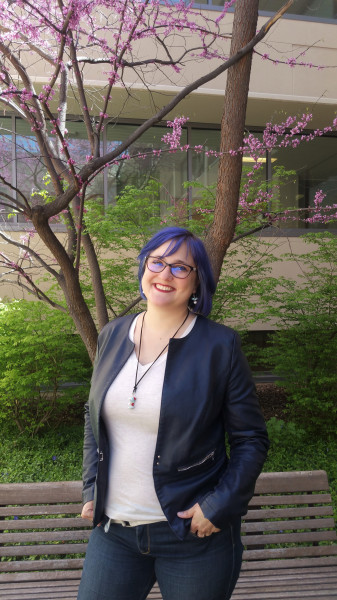Master Instructor
About
Website:
http://Ashleymdavies.comRole:
FacultyPosition:
- Master Instructor
Concentration:
- Contemporary Literature
Department:
- English, University Composition Program, and University Honors Program
Education:
- MA English Literature
Curriculum Vitae:
Biography
Ashley Davies earned her B.A. in English from Utah Valley University, and then moved with her dog to Fort Collins to pursue an M.A. in English Literature. Earning distinction, her graduate work explores representations of rape in popular music and integrates research from psychology, philosophy, women's studies, anthropology, and other fields. This, along with her time as an account manager and copywriter at a small marketing firm, has influenced her approaches to teaching writing. Since returning to CSU's English department, Ashley has regularly taught courses in composition, literature, and American Studies. Her current research combines her ongoing interests in gender, violence, and representations of the body with her travel experience to bring world comics and global popular literatures into the classroom. Starting in 2017, Ashley has been the teaching assistant and program leader for the community health and education study abroad program in Zambia—leading to an especially strong infusion of African comics in her teaching.
First Generation Story
My parents always valued education, even though they weren't able to complete college. My dad attended some classes, but with a young family, he spend his time focusing on supporting us. I was fortunate that my siblings went to college and helped to show me the process of applying. Once I got into my first classes, I felt overwhelmed. Even though I was at a small school, it seemed like everyone was more experienced and more intelligent than I was. They were referencing Shakespeare and "The Greeks" and my references were from TV shows. How could I compete or even keep up with them? One of my English professors was the first person to tell me about impostor syndrome, which I definitely had. Once I realized that many of my classmates felt as overwhelmed as I was, I started to build confidence and take more risks in my classes. These small risks lead me to some undergraduate research conferences and eventually grad school.
Courses
-
CO300
-
AMST101
Understanding our past and our vision for the future can help us to understand the present. In our study of the United States of America, we’ll work to better understand our American mythology and how it shapes our view of history, the American national identity, and ourselves as part of this country. Rather than working purely chronologically, like a traditional history class, we will look deeply into movements and moments of change that have shaped the nation we know today. American Studies, as a field within the liberal arts, is interdisciplinary in nature. Therefore, you can expect to encounter, analyze, synthesize, and write about texts from literature, history, visual art, music, film, architecture, design, psychology, and other fields. By bringing these different texts together, we will start to understand how mythology is formed and what is sacrificed as those mythologies become pervasive. Beyond the study of American culture, the course also requires and helps students develop skills in reading, writing, critical thinking, and speaking; it also helps develop their abilities to work both independently and collaboratively.
-
Honors 192, 193, 292b
By reading a variety of international graphic novels we’ll begin to
understand different cultures: their values, their relationships, and
their narrative and artistic styles. Through our exploration, we’ll
challenge the simplistic thinking that often reduces a nation to a
caricature or a stop at Disney’s Epcot. In the Brazilian Daytripper,
we’ll consider how celebration of a sea goddess influences the work
and demonstrates the complex history of a country. Moving to
African Comics, we’ll see modern superheroes and re-imagined
history. In Israel, Modan’s Exit Wounds will help us think through
family relationships marked by ongoing political turmoil. Ranma
1/2 from Japan is a delightful tale of high schoolers dealing with
gender expectations. Finally, we’ll move to Europe with the French
graphic novel Blue is the Warmest Color to think about more about
romantic relationships. In each geographic area, we’ll look at
samples of work from these locations to get a better sense of
patterns. Using the interdisciplinary approach of cultural studies,
we’ll consider the connections between the personal, the familial,
and the national identity. By bringing graphic novels and scholarly
work together, we will develop a better understanding of our
increasingly global world and work towards more complex
multicultural perspectives. -
E352: Reading and Writing the Zambia Experience
-
E150
